8 Women Making Strides in African Agriculture and Why it Matters
As with many male-dominant industries, it has been historically difficult for women to excel in agriculture. Around the globe, women in farming face obstacles ranging from limited land ownership, training, and resources, to blatant discrimination and exclusion. These barriers are perhaps most felt and most damaging in the developing world.
In honor of International Women’s Day and farming women around the world, Trees for the Future (TREES) is exploring the challenges women face, solutions to these barriers, and highlighting eight inspiring women in the industry.
In Sub-Saharan Africa, TREES works directly with women in agriculture. Joan Okuthe, Lead Technician of the Homa Bay 2 project in Kenya explains what it’s like to be a woman in agriculture in Kenya.
“Women are the farmers, housekeepers, and mothers to both their families and the community,” Okuthe says. “They have always ensured that the family has enough food to eat, clothes to wear, and shelter. They make sure children go to school and are often the sole breadwinner for the family.”
But when it comes to being recognized for their strength and influence, Okuthe says women are often overlooked and undervalued. “Women are leaders of their household… but men are the decision makers,” she says.
Trees for the Future is striving to address the disparities women in agriculture face. Trees for the Future works with women-led farming groups to ensure women are being afforded the same opportunities as male farmers in the region and at least 30% of Trees for the Future program farmers must be women.
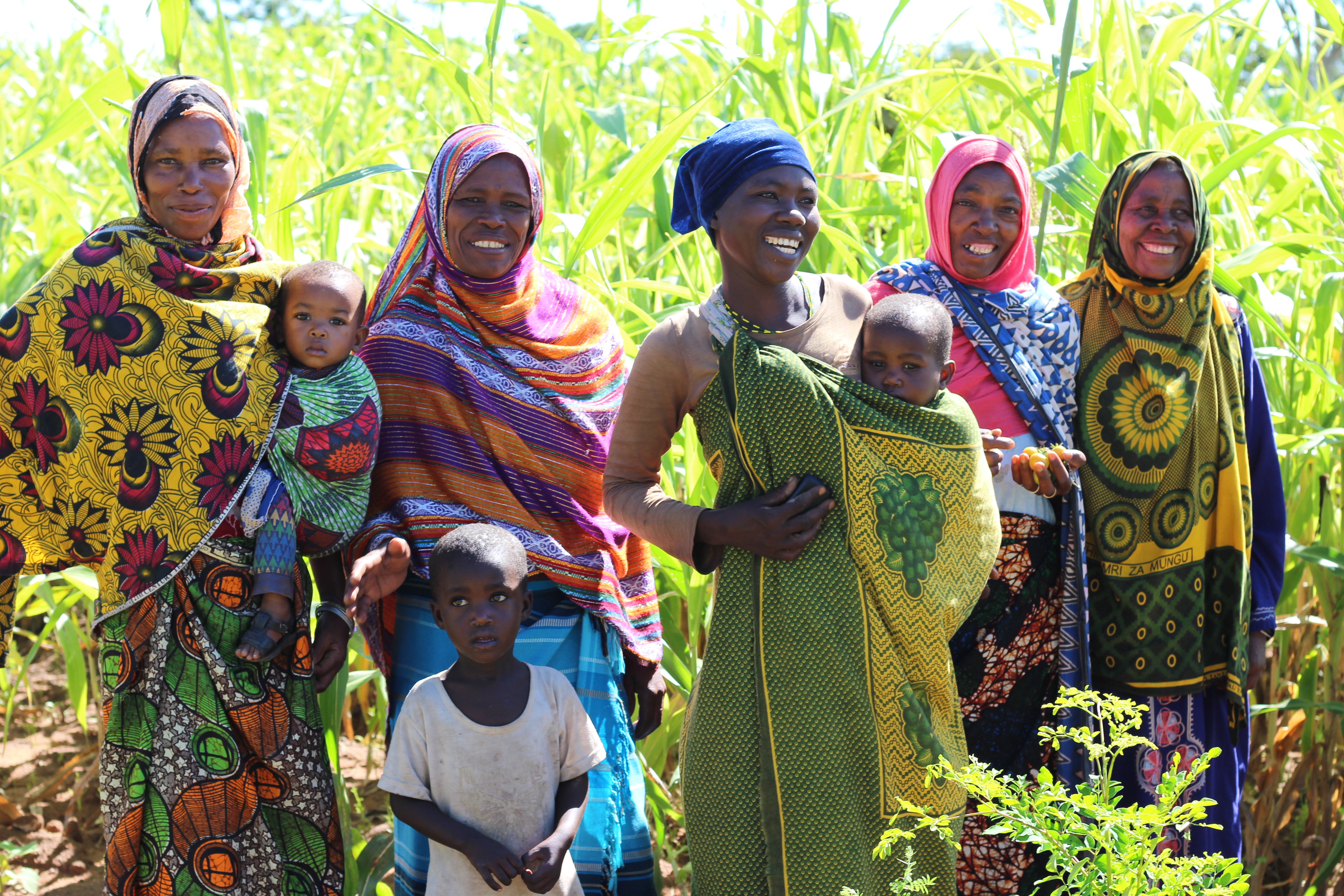
Land ownership is a particular challenge for women in the developing world as they are often not able to own land. In addition to not having control over the key resource in agriculture, Okuthe says women can also struggle to gain access to tools, seeds, water, and training.
Okuthe explains the delicate balance that must be struck when introducing a program that seeks to give agency to women while still allowing men to keep the customary decision making power. She says TREES has had so much success empowering women with the Forest Garden Approach because it allows for cultural norms while still challenging women to push for more. When the land belongs to the men but the farming belongs to the women, a Forest Garden effectively becomes a priority for both of them. Once they are part of the program, women receive training and resources that they typically can’t get otherwise.
After successfully maneuvering the land ownership obstacle, Okuthe says TREES is putting women in leadership roles both as lead farmers and, in her case, prominent staff positions within the organization.
“This encourages women, they see that they can join the program and become leaders as well,” she says.
In order to attain and sustain accelerated growth, the agriculture sector has to address a multiplicity of constraints including gender inequalities. It’s important to break these barriers to success, TREES knows women must be part of the sustainable solution to hunger, poverty, and deforestation.
Eight Women Making Strides in African Agriculture
“Joan trains hundreds of women farmers in the Forest Garden Approach.”
Joan Okuthe, Trees for the Future Lead Technician, Homa Bay 2, Kenya
Joan leads a large group of Forest Garden farmers in Homa Bay. The group is made up of more than 550 farmers and 59% of them are women. She sees the obstacles women in agriculture face on a regular basis and is using her background and expertise to shape the futures of both women and men in the program.
“Sira is setting an example for women in her community as the first female training technician in Kaffrine, Senegal.”
Sira Bakhayokho, Trees for the Future Technician, Kaffrine 9, Senegal
There are several women on the TREES staff in Senegal, but Sira is the only female training technician. Her role consists of meeting with Forest Garden farmers and teaching them how to establish and maintain a thriving Forest Garden. “When I joined this team, I expected my colleagues to underestimate me or not recognize my skills. Quite the contrary, the team is immeasurably supportive, especially in certain villages where seeing a woman driving a motorcycle and supervising work may seem [out of place]. Being the only woman makes me proud because it is in my work that I can show other women of my generation that they can do anything.”
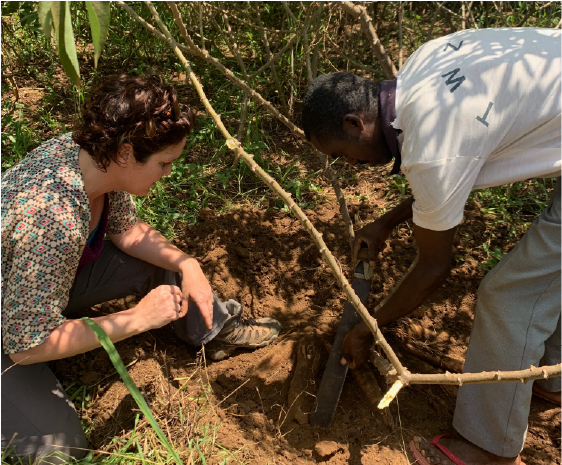
Brandy Lellou, Trees for the Future Director of Programs, United States
“Growing up on a farm in Eastern Colorado, I not only learned hard work, but also the joy and desperation farmers experience with their livelihoods being codependent on weather and markets. However, despite working hard and being the most important element of our continued well-being and existence, farmers have largely become invisible in our modern food systems.” Brandy is working tirelessly to bring lasting change to smallholder farming communities, learn more about her.
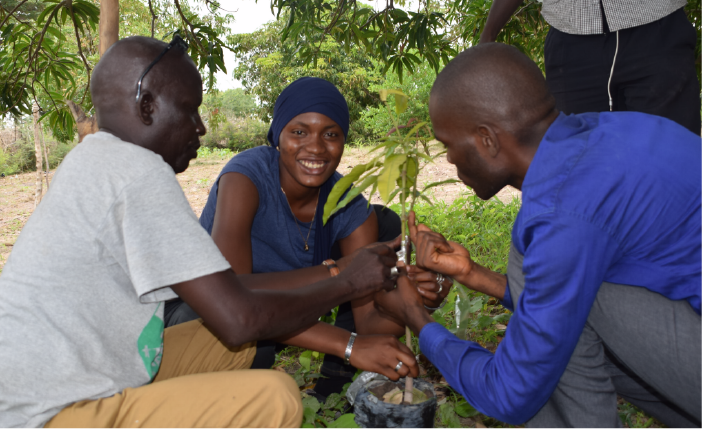
Fatoumata Diedhiou, Country Coordinator, Senegal
Fatoumata is the youngest and first woman Country Coordinator at Trees for the Future and a 2019 recipient of the SRI 30 Under 30 award. “I believe in one thing. I believe women can all [accomplish anything] if they want to, so I encourage them to be more decisive in their work and believe that being a woman does not reduce the ability to change the world.” Read more about Fatoumata.
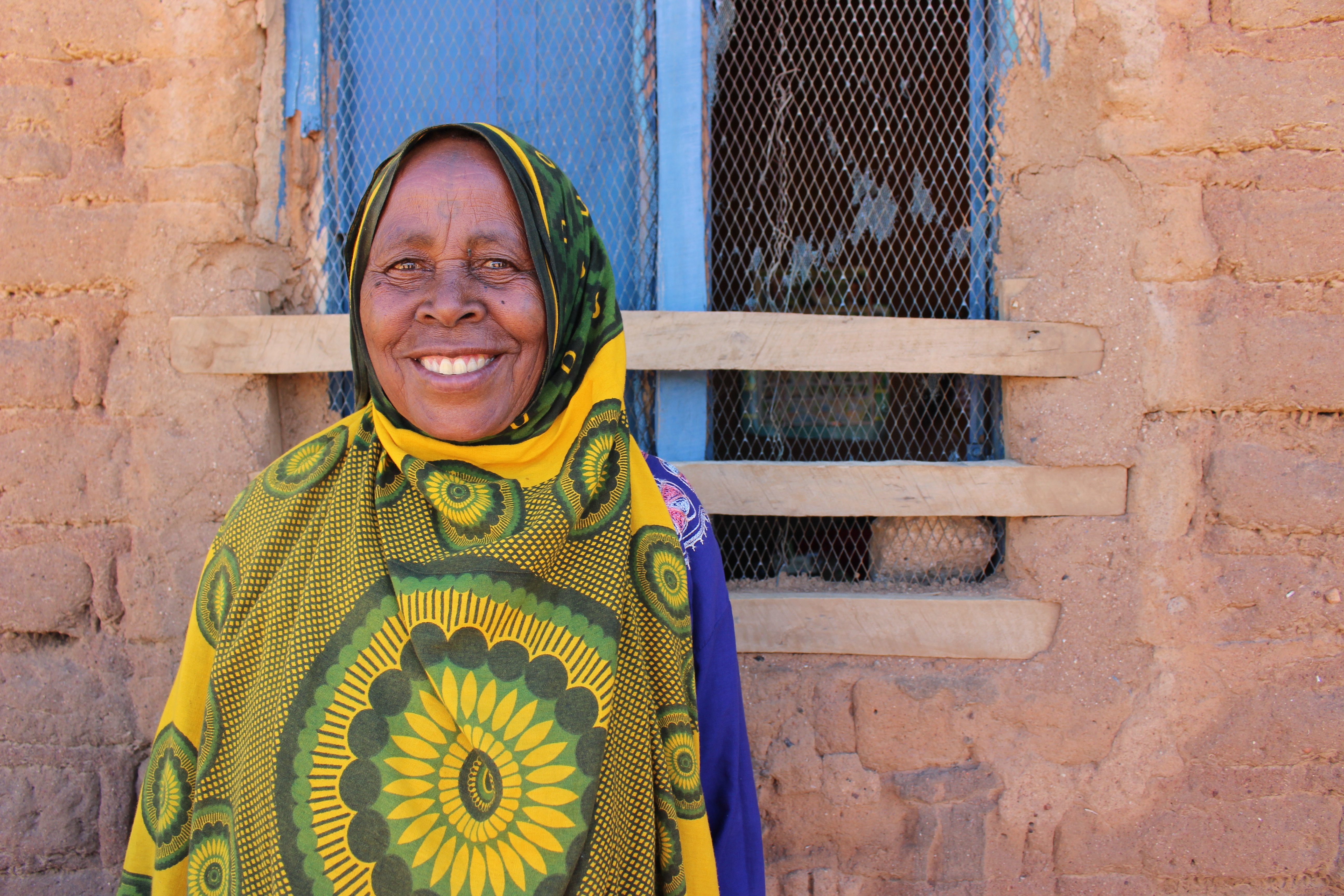
Hawa, Lead Farmer, Tanzania
Hawa is the lead farmer of Upendo Farmer Group, a group of farmers living with HIV. Hawa checks in on the progress of participant’s Forest Gardens like any Lead Farmer, but she also hosts weekly support meetings for the group and manages additional income generating opportunities for the group. In a group of men and women facing the unimaginable, Hawa is a source of courage and support. Learn more about Hawa and the Upendo Farmer Group.
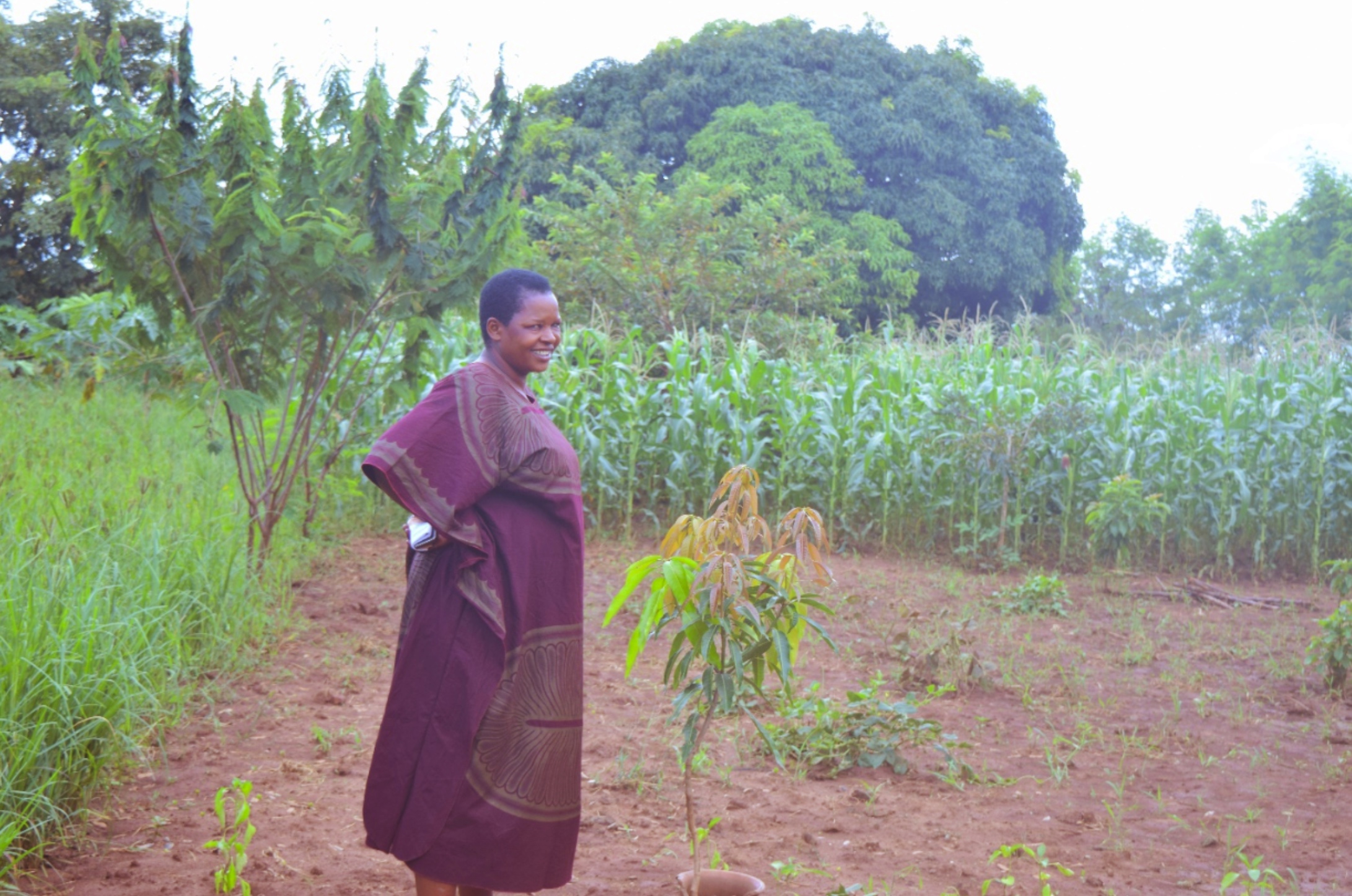
Carol Aboke, Forest Garden Farmer and Restaurant Owner, Uganda
When Carol found success as a Forest Garden farmer she didn’t stop there. She took her newfound savings and stability and started her own business in town. She has not only ended food insecurity for her family, she is providing organic and nutritious meals to her village through her restaurant. Read more about Carol.
“Janet Rahab leads an information session on Forest Gardening.”
Janet Rahab, Forest Garden Farmer, Kenya
Janet dedicates her time to her Forest Garden and to supporting other women in the region. She credits her training through TREES as the conduit to her success. “Knowledge is an inexhaustible asset and has no gender barriers. Women should take any opportunity that comes their way and advance their knowledge. You will be surprised at how much you don’t know and how much better life would be if you did know.”
[card image= “/app/uploads/2019/09/TFTF_Senegal_Day2_3774-1.jpg” caption= “Aminta is the president of a women’s saving club in Senegal.”]
Aminta Sall, President of a Womens Savings Club, Senegal
Aminta is the president of an all women village savings and loan club. She is leading 24 other women in their work to build more financially stable lives for themselves by farming and supporting one another. Learn more about Aminta and her Savings Club.
Visit trees.org/wherewework to explore program countries, meet the women and men on staff, and find the gender breakdown of each program.
